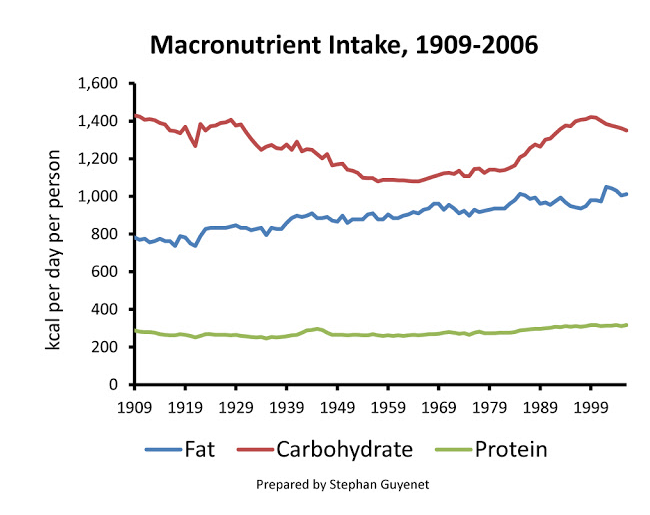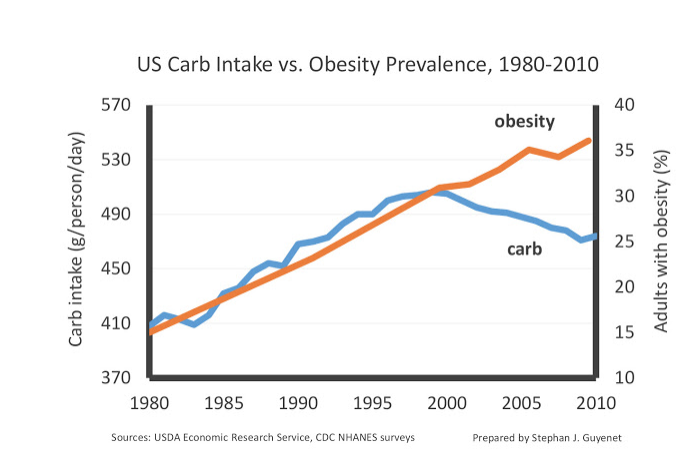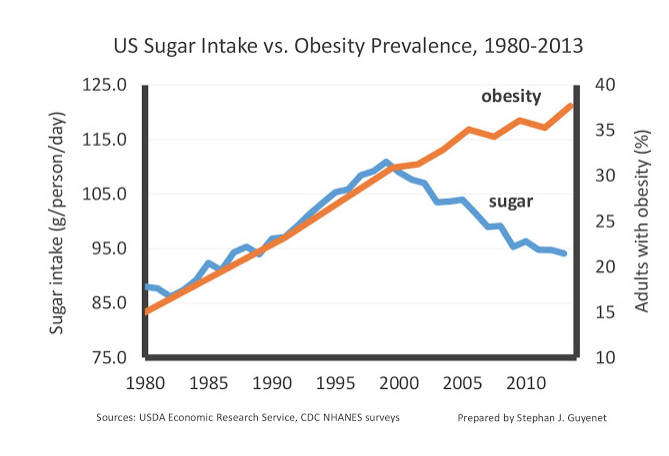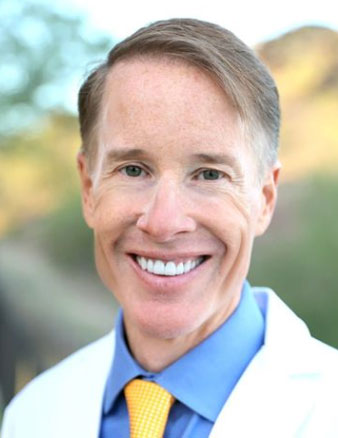Today’s discussion starts with a question from a reader. It’s something I have been wanting to talk about for quite some time, and this really brought it home for me. So, without further ado, we’re going to talk today about whether America’s “low-fat diet” failed.
Here’s the question I’m talking about:
“Hi Dr. C – I lost 18 pounds on the Metabolism Reset Diet but my sister won’t try it. She said I should not eat carbohydrates because Americans only started gaining weight after they went low fat and high carbohydrate. Is this true?”
This is an awesome question. It’s fair, and it is something that a lot of people do talk about.
That’s why I want to dive a little bit deeper into it.
So, the typical scenario that this reader is describing is that America “went low-fat” in the ’80s and that was the real cause of the obesity crisis.
Product Recommendation: This custom bundle is a great starting point for those that are struggling with stubborn weight and unexpected weight gain caused by thyroid disease. Thyroid Weight Loss Bundle
Understanding Carbohydrates
Let me step back, though, and put my own bias on the table. I have never been the “carb guy,” and I’m not going to be the one to tell you that they’re magical.
In fact, I’m also not the guy who is going to tell you that fats are bad. Quite the opposite.
The funny thing is that in the early ‘90s I was writing for a food co-op in Northern Minnesota (where I was also the clerk).
At the time, I was writing about food and supplements and things like that. This was at the absolute height of the low-fat movement.
Key Insight: Even during that point, I was still against the severity of the movement.
The government recommendations were relatively modern at that point. They suggested keeping fat to around 30% of calories or just below that.
But, unfortunately, many people took that message and ran with it. They figured that if less is better, that none must be the best of all.
Bottom Line: Even back then, what I pushed for was including more fats and protein, all of the macronutrients that we need – because, you guessed it, they are nutrients, too! I truly believe that they all have their place (Read More: It’s The Fuel That Matters!).
Did America Ever Really Go Low-Fat?
For context, the obesity crisis really did seem to emerge in the early ‘80s. It basically served as an inflection point for the entire issue by the early 2000s.
There were also these government guidelines that I talked about. On top of that, the average American did lower their percentage of fat by a little bit.1
But, the devil is truly in the details. Let’s break it down a bit more.

The above chart illustrates America’s intake of macronutrients from 1909 to 2006. If you look at our fat intake, you’ll notice that it hardly dips over time. In fact, it has steadily grown.
What about when I mentioned our percentage of fat going down? That’s because the folks you say who went low-fat or fat-free were in the margins. The average American didn’t really change the way they at much at all.
Key Insight: In fact, they did not even hit the recommended target of less than 30%.
So, how could that be? What happened in the ‘80s is that people started consuming more total food overall. In fact, carbohydrates saw a significant boost in the ‘80s – and these were processed, sugar-sweetened grain products, specifically.
This would be the epitome of those fat-free cookies that were instead filled with sugar, and generally not great for you (even if you, unfortunately, thought they were).
Bottom Line: People got the message that fat was bad, and instead of cutting it out they merely kept it the same. Instead, they boosted how many carbs (of all types) they had in their diet.
Carbs and Obesity

Given what we know, we can start to understand this moment in time.
While we may have been told that we needed to cut down on our percentage of fat, the message that came through was that carbs were great in all their forms.
Perhaps this was the message that we wanted to hear, but it was not the right one to receive. That’s because not all carbs are created equal. We know that as a fact.
It wasn’t that good, natural carbohydrate consumption went up. Instead, processed carbs went up and it turns out that was a factor causing weight gain.
Key Insight: Our percentage of total fat only went down, because our consumption of food (especially processed carbs) went up!
The Shifting Message Around Carbs
Then came the early 2000s.
Instead of hearing that all carbs, in all their forms, were good to eat and good for you, we started to see a push back in this narrative.
This chart does a great job of illustrating that shift:

In 2000, the intake of carbs in terms of absolute amount did start to drop. In the years that followed, people lowered their carb intake by a significant amount.
But, this obesity trend (which you can see in the orange line) did not really budge. The rate kept going up, and the drop in carbs didn’t change that.
Key Insight: When people started lowering their carb intake, they went back to eating more fat as part of their overall diet.
This is the exact same shift before, except with fats. People believed that carbs were no longer good, but that fat in all its forms would be healthy. Even in the forms that are not.
It gets even stranger, though! Take this chart for example:

Yes, sugar intake also went down around the same time as the drop in carb consumption. Yet, obesity keeps climbing.
What’s The Final Message?
The point of all this is to illustrate the fact that the ratio of fats and carbs is not an overall significant variable.
Instead, it comes down to:
- How much food you are eating overall
- Your protein intake and satiety levels
- The sleep and stress load you’re living with (Read More: The Key To A Good Night’s Sleep)
- Your rhythms and waketimes
All of those things make a real difference. Playing around with fats and carbs is simply rearranging the same puzzle time and again. Eventually, you’ll end up with the same result.
Key Insight: It will not help, it did not help (as you can see from the data), so what you need instead is to flip that line of thinking on its head.
Ultimately, you are safe to eat carbohydrates. And, building on that, carbohydrates were not the cause of the obesity crisis. If it were, the low-carb boom of the early 2000s would have had a large impact on the obesity rate.
Prioritize Your Health Today
Now that we know a bit more about going low-fat or going low-carb, isn’t it time to open your eyes to some other key truths about your health?
It all starts with your thyroid.
If you have ever been concerned about the health of your thyroid, now’s your chance to get a really clear picture of how it’s working. Take the Thyroid Quiz today (Click Here: Take The Thyroid Quiz Today), and you’ll get a better idea of how it’s working, and what you can do to make it work better.
Resources
1 – https://www.ers.usda.gov/data-products/food-availability-per-capita-data-system.aspx

1. Schedule a Thyroid Second Opinion with me, Dr. C, Click Here for Details
2. Download and use my Favorite Recipes Cookbook Here
3. Check out my podcast Medical Myths, Legends, and Fairytales Here
Dr. Alan Glen Christianson (Dr. C) is a Naturopathic Endocrinologist and the author of The NY Times bestselling Adrenal Reset Diet, The Metabolism Reset Diet and The Thyroid Reset Diet.
Dr. C’s gift for figuring out what really works has helped hundreds of thousands of people reverse thyroid disease, lose weight, diabetes, and regain energy. Learn more about the surprising story that started his quest.


